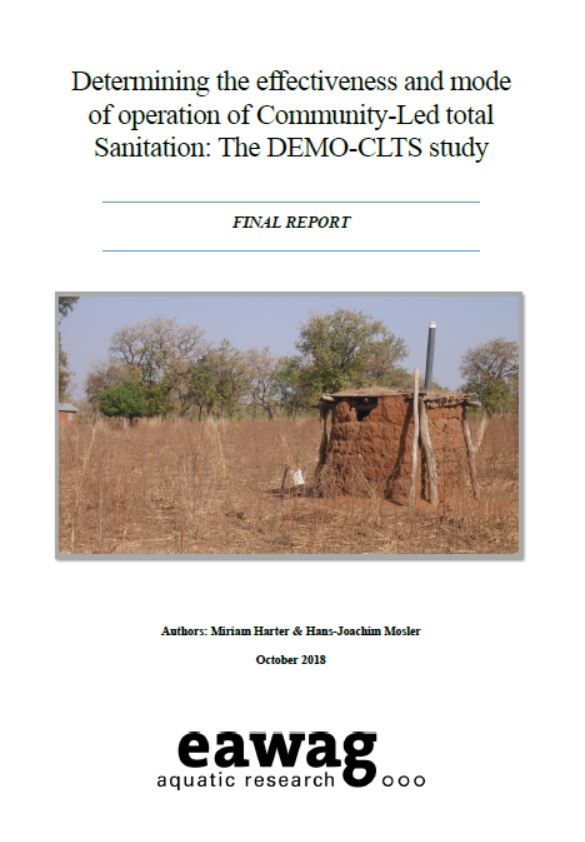Determining the effectiveness and mode of operation of Community-Led total Sanitation: The DEMO-CLTS study
 |
report Oct 2018 ; 48 pages
Aut.
Ed. EAWAG - Dubendorf
Downloadable format: PdF
Editor Presentation
Abstract:
This final report of the DEMO-CLTS project funded by the Bill and Melinda Gates Foundation aimed to assess the impact of CLTS on OD, both in its entirety and individually for its key elements; moreover, it aimed to determine the mechanisms of CLTS for behavioral change. The study also compared the effectiveness of the CLTS approach against that of an evidence-based approach.
The project’s overall goal was to improve the behavioral change strategies used to eliminate OD.
In a first phase of the project taking place in Mozambique, Lao PDR and Cambodia elements of the broad CLTS canon fostering or constraining the success of CLTS was identified. In a second phase in Ghana a randomized controlled trial was conducted, mainly to address the following objectives:
- Assessment of the effectiveness of CLTS interventions on Open Defecation
- Determination of the impact of CLTS as entirety and of its key elements on behavior change
- Comparison of CLTS with an evidence-based behavior change intervention targeting psychological factors determined by a baseline survey
Target Audiences:
Keywords: |
CLTS Community-led Total Sanitation (CI) (DT) (ET) , evaluation, impact (CI) (DT) (ET) |
Countries: |
Cambodia (CI) (DT) (ET) , Ghana (CI) (DT) (ET) , Lao (CI) (DT) (ET) , Mozambique (CI) (DT) (ET) |
Publisher/Broadcaster: |
|
EAWAG
-
Institut Fédéral Suisse des Sciences et Technologies de l’Eau - Dubendorf - Switzerland |
If there is a broken link, we will be pleased to receive a message: communication@pseau.org